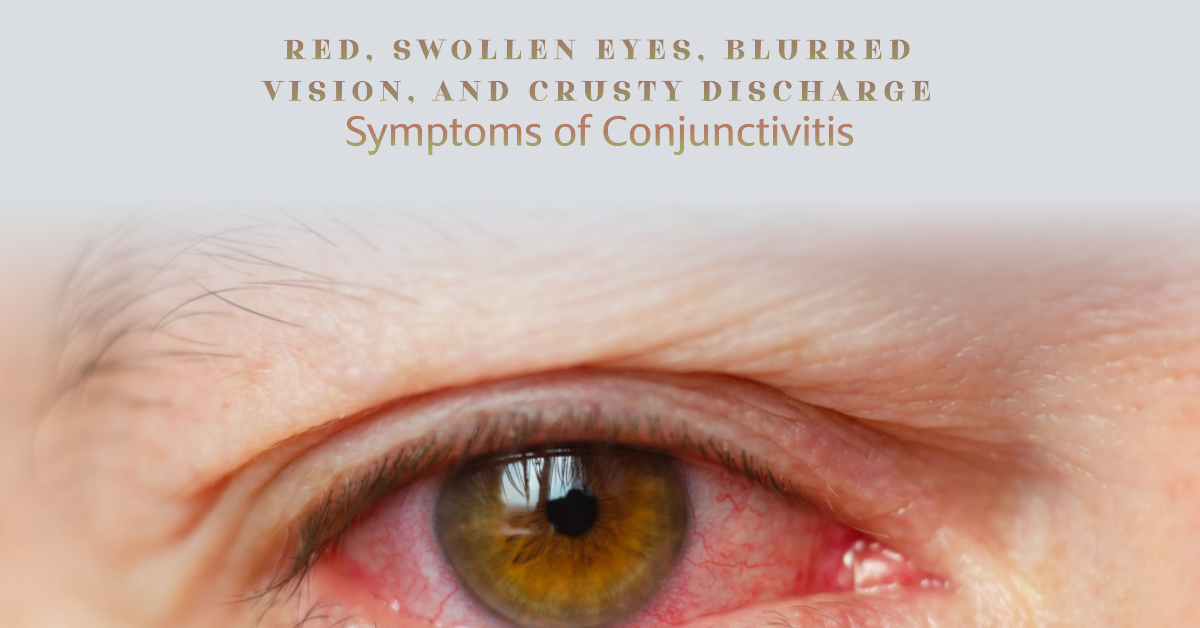Hello there, readers! If you’ve ever experienced red, irritated eyes that seem to water more than usual, you might be dealing with conjunctivitis. Commonly known as “pink eye,” this eye condition can be a nuisance, but fret not – we’re here to guide you through it all! In this article, we’ll dive deeper into the symptoms, causes, and caring for conjunctivitis to help you understand this pesky eye issue.
Table of Contents
Unveiling the Symptoms
Conjunctivitis comes with a variety of symptoms that can range from mild to more severe. The telltale signs include redness of the whites of the eyes, excessive tearing, and an itchy or gritty sensation. But there’s more to it than just the classics! You might also notice a discharge from your eyes, which can be white, yellow, or even green. Moreover, your eyes could feel more sensitive to light or have a burning sensation – all potential indicators of conjunctivitis.
Exploring the Causes
Now, let’s uncover what brings about this eye irritation. Conjunctivitis can stem from several sources, each requiring a slightly different approach. Viral conjunctivitis, often associated with colds or flu, is highly contagious and spreads like wildfire. Bacterial conjunctivitis, on the other hand, is caused by bacteria and can be easily treated with antibiotics. Allergic conjunctivitis tends to be triggered by allergens like pollen or pet dander, while irritant conjunctivitis results from exposure to things like smoke, chemicals, or foreign bodies.
Caring for Your Eyes
The good news is that conjunctivitis is usually not serious and can be managed effectively. To alleviate discomfort, consider applying a clean, warm compress to your closed eyelids. Make sure you avoid touching or rubbing your eyes, as this can worsen the irritation and spread the infection if it’s viral or bacterial. If your doctor prescribes eye drops or ointments, be sure to use them as directed to expedite the healing process.
Conclusion
Conjunctivitis might give you a case of the “pink eye blues,” but armed with the knowledge of its symptoms, causes, and proper care, you’re well-equipped to handle it like a pro. Remember, maintaining good eye hygiene and seeking timely medical attention when needed can make a world of difference. Here’s to keeping your eyes clear, bright, and healthy!
-
Can conjunctivitis affect both eyes?
Absolutely! Conjunctivitis can strike one or both eyes, depending on the cause. Bacterial and viral conjunctivitis often affect both eyes, while allergic or irritant conjunctivitis may be more localized.
-
How contagious is conjunctivitis?
Viral and bacterial conjunctivitis are highly contagious. Avoid close contact with others, and practice good hygiene by washing your hands frequently. It’s wise to avoid sharing towels, pillowcases, or eye makeup during an active infection.
-
When should I seek medical attention?
If your symptoms are severe, last more than a week, or you experience changes in vision, it’s essential to consult an eye care professional. Additionally, if you suspect bacterial conjunctivitis, a doctor’s visit is crucial to determine the appropriate treatment.
-
Can I prevent conjunctivitis?
While you can’t always prevent conjunctivitis, you can reduce the risk by practicing good hygiene, avoiding sharing personal items, and protecting your eyes from irritants and allergens.
By understanding the various signs – from redness and itching to discomfort and excessive tearing – you’re better equipped to take the right steps for relief and healing.
Remember, your eyes deserve the best care, and staying knowledgeable about conditions like conjunctivitis is a proactive step towards maintaining optimal eye health. To explore further insights on eye-related topics, tips for eye care, and more, we invite you to read more such articles. Simply click here to embark on a journey to brighter, healthier eyes.














Leave a Reply
View Comments